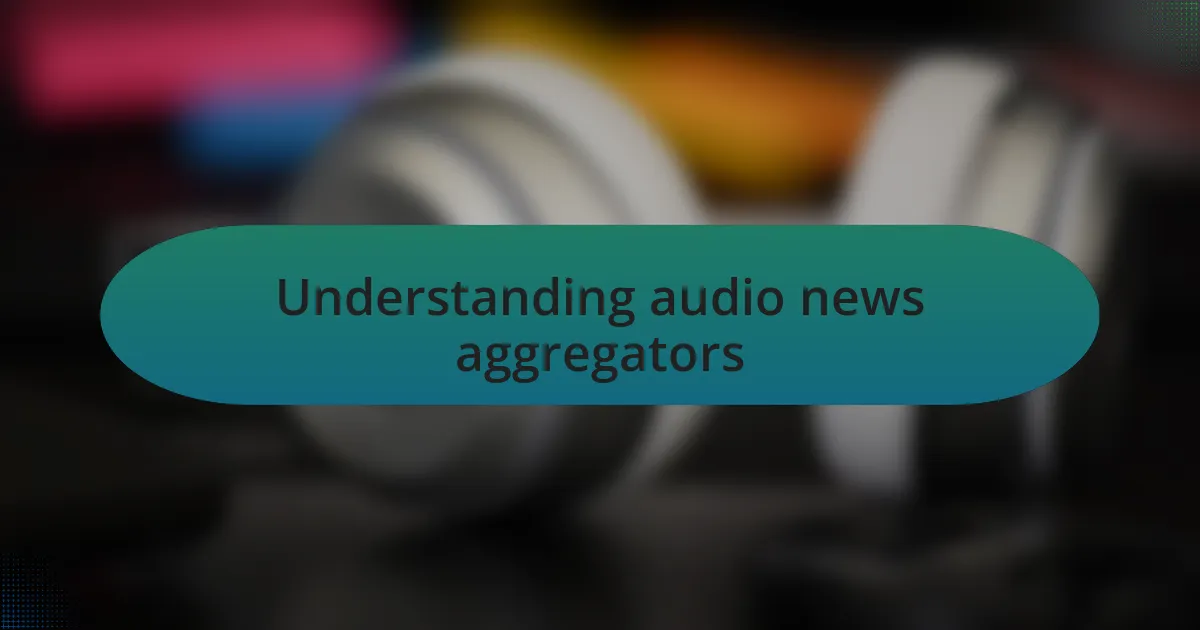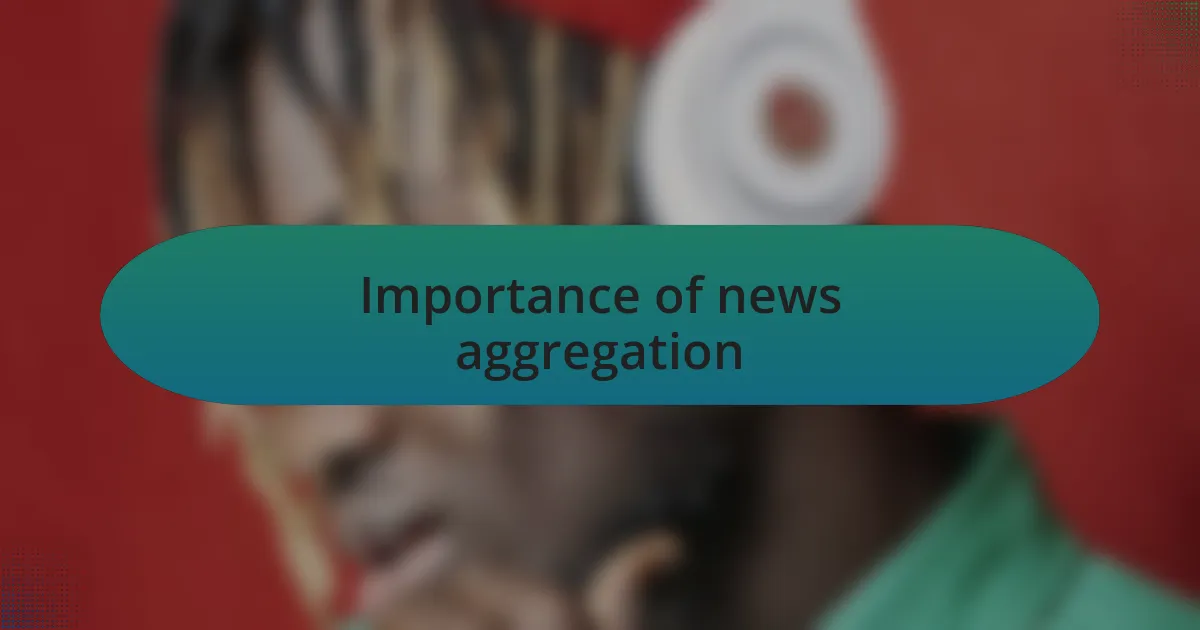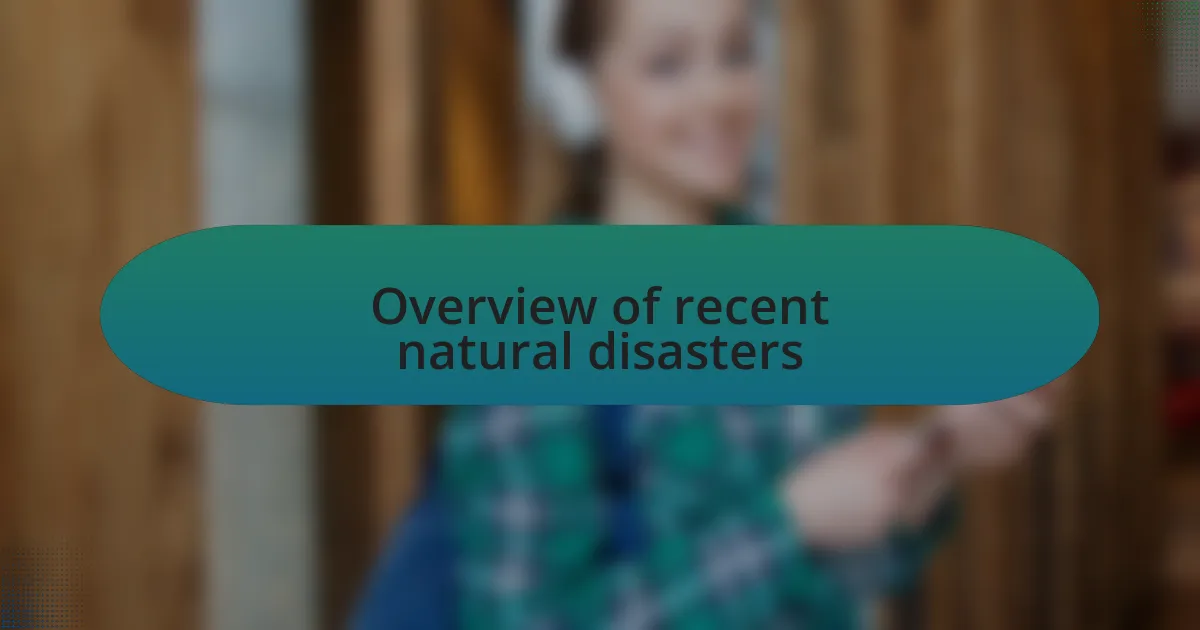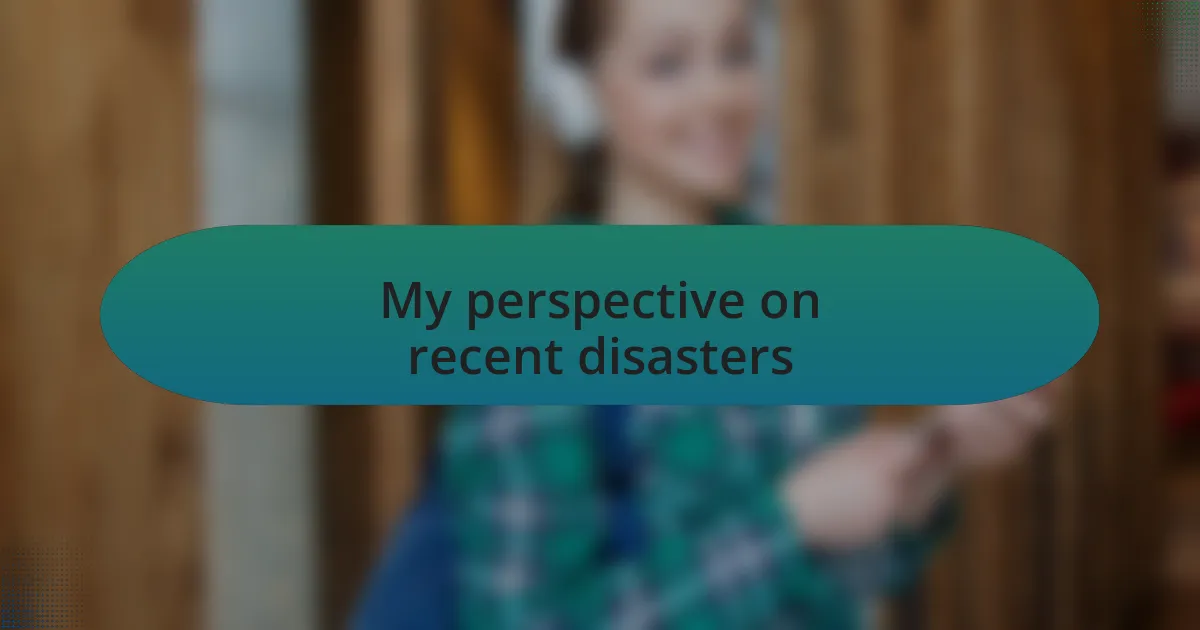Key takeaways:
- Audio news aggregators simplify information consumption by curating relevant content, enhancing engagement and understanding.
- News aggregation provides multiple perspectives on events, saving time and enriching contextual knowledge about current affairs.
- Recent natural disasters emphasize the importance of community preparedness and resilience in the face of environmental challenges.
- Experiences from disasters highlight the need for proactive collective action and unity to support affected individuals and communities.

Understanding audio news aggregators
Audio news aggregators play a crucial role in our digital age, seamlessly gathering news from various sources and delivering it in a convenient audio format. I remember the first time I used one while commuting—it transformed what used to be dead time into an opportunity to stay informed. Have you ever considered how much content is out there, and how overwhelming it can be? These platforms filter the noise for us, bringing relevant news right to our ears.
One of the most fascinating aspects of audio news aggregators is their adaptability. They can cater to individual preferences, allowing listeners to curate their own news experience. I often find myself gravitating toward specific topics, and it’s incredible how these tools mold to my interests. Do you have a favorite podcast or news blurb that you can’t miss? That’s the beauty of these aggregators—they elevate our listening experience by ensuring we get the content that resonates with us.
Moreover, the rise of audio news brings a unique emotional connection to information consumption. I frequently find that listening to news stories creates a sense of presence and urgency that reading on a screen simply can’t match. Don’t you feel more engaged when you hear a passionate voice narrating a story? This auditory engagement can lead to a deeper understanding of events and issues, making audio news aggregators an invaluable tool in today’s fast-paced world.

Importance of news aggregation
News aggregation serves as an essential tool for navigating the often chaotic realm of information. Without it, I would find myself lost in a sea of articles, struggling to discern which updates are truly significant. Have you ever tried to keep up with breaking news from multiple sources? It’s easy to miss crucial details. Aggregators streamline this process, presenting a blend of perspectives that enrich my understanding of events.
In my experience, news aggregators not only save time but also provide context that deepens my engagement with current affairs. I recall a day when a natural disaster struck a nearby region; through various aggregated audio reports, I pieced together the situation more comprehensively than I could’ve with isolated articles. It made me realize just how powerful curated news can be—turning snippets of information into a fuller narrative.
The convenience of accessing multiple viewpoints is utterly transformative. I often find myself listening while cooking or working out, effortlessly absorbing critical updates. Isn’t it a relief to know that you can stay informed without having to dedicate specific time to read? This flexibility fosters a habit of continuous learning, allowing me to connect with the world around me in meaningful ways.

Overview of recent natural disasters
Recent natural disasters have highlighted the pressing need for a collective response and deeper understanding of our environment. Just last month, a powerful earthquake shook a region I’ve visited before, causing widespread damage and affecting countless lives. It made me reflect on how unprepared we might feel in the face of such relentless forces of nature.
In recent weeks, wildfires have raged through parts of our country, leaving scorched landscapes and a heavy heart. Watching the news coverage, I couldn’t shake off the feeling of helplessness, especially knowing people have lost their homes and livelihood. Isn’t it haunting how quickly nature can shift from serene beauty to chaotic destruction?
Moreover, flooding in various states reminded me of a charity I once volunteered for after a similar event. The outpouring of community support was inspiring, yet I remember feeling overwhelmed by the need. Experiencing these disasters through news reports and personal connections emphasizes our shared vulnerability and the urgent necessity for preparedness and resilience. How can we better equip ourselves to face these challenges as they arise?

My perspective on recent disasters
My thoughts on recent disasters are shaped by deep concern for those affected and a sense of urgency in our response. I recall attending a community meeting after a hurricane devastated a nearby town; there was this palpable mix of fear and determination in the air. How can we turn that fear into tangible action before disaster strikes again?
Witnessing the aftermath of wildfires can be heartbreaking. I still remember volunteering at a shelter after one such event, helping families sift through their belongings for anything salvageable. It solidified for me how fragile our lives can be; what do we truly prioritize until it’s almost lost?
I find myself pondering the lessons these events teach us about resilience. After every disaster, I often hear stories of recovery that inspire hope, yet I can’t help but ask: are we doing enough to foster that same spirit of unity before calamities arise? Our collective preparation could make a world of difference, but we must start now.